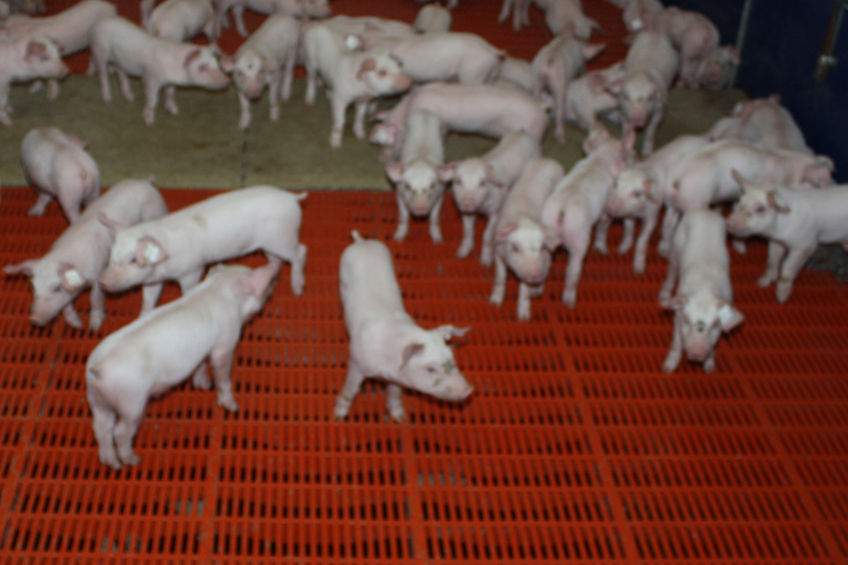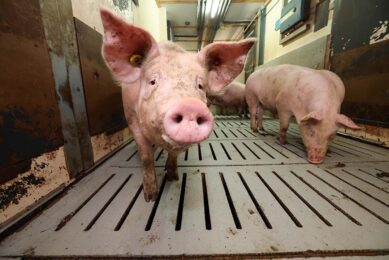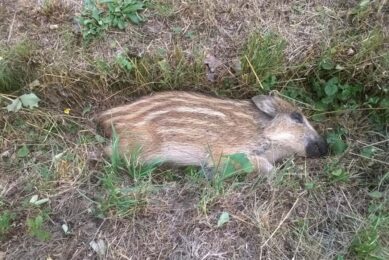Trial: Pigs do not play role in Schmallenberg spread

Under experimental conditions, pigs have proved not to play a role in Schmallenberg epidemiology, Belgian researchers conclude.
Since November 2011, the virus has been reported in cattle, sheep and goat in many European countries. The virus is responsible for an acute non-specific syndrome in adult cattle including high fever, decrease in milk production and severe diarrhoea. It also causes reproductive problems in cattle, sheep and goat including abortions, stillbirths and malformations.
The role of pigs in the epidemiology of Schmallenberg virus had not yet been evaluated while this could be interesting seen their suggested role in the epidemiology of the closely related Akabane virus.
To address this issue, four 12 week old seronegative piglets were subcutaneously infected with 1 ml of Schmallenberg virus infectious serum and kept into contact with four non-infected piglets to examine direct virus transmission. Throughout the experiment blood, swabs and faeces samples were collected and upon euthanasia at 28 days post-inoculation different organs (cerebrum, cerebellum, brain stem, lung, liver, iliac lymph nodes, kidney and spleen) were sampled.
No clinical impact was observed and all collected samples tested negative for the virus in rRT-PCR. Despite the absence of viraemia and virus transmission, low and short lasting amounts of neutralising antibodies were found in two out of four infected piglets.
The limited impact of the virus infection in pigs was further supported by the absence of neutralising anti-Schmallenberg virus antibodies in field collected sera from in total 106 indoor housed domestic pigs.
The researchers concluded that Schmallenberg virus infection of pigs can induce seroconversion but is ineffective in terms of virus replication and transmission indicating that pigs have no obvious role in the virus’ epidemiology.
The research was recently published in the magazine Veterinary Microbiology and was carried out by A. Poskin, W. Van Campe, L. Mostin, B. Cay and N. De Regge, all connected to the Coda Cerva research centre in Belgium.
Join 18,000+ subscribers
Subscribe to our newsletter to stay updated about all the need-to-know content in the pigsector, three times a week. Beheer
Beheer










 WP Admin
WP Admin  Bewerk bericht
Bewerk bericht